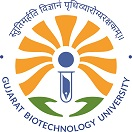
Dr. Ankit Rai, PhD
– M.Sc.: Department of Biotechnology
– Ph.D.: Department of Biosciences and Bioengineering
About
I am a researcher interested in exploring the various aspects of cytoskeleton dynamics including drug discovery and understanding protein-drug interaction. I did my master’s in Biotechnology from Pune University and completed my Ph.D. in cancer chemotherapy from IIT Bombay where I worked on drug discovery and understanding of microtubule-drug interaction. After my Ph.D., I moved to Prof. Anna Akhmanova Laboratory, Utrecht University, the Netherlands where I initiated a new research direction – I started to investigate the mechanisms underlying the effects of cancer drugs on microtubule polymerization by direct visualization of drug-microtubule interactions in real-time using high-resolution microscopy and single-molecule analysis. I moved to India in September 2021 and joined Banaras Hindu University as a Ramalingaswami Fellow in the Department of Biochemistry. After joining GBU, I am interested in exploring the chemotherapeutic potential of autophagy and cytoskeleton dynamics in neurodegenerative diseases and cancer.
Background
- M.Sc.: Department of Biotechnology, University of Pune, Pune (2005-2007)
- Ph.D.: Department of Biosciences and Bioengineering, IIT Bombay, Mumbai (2008-2014) Ph.D. Supervisor: Prof. Dulal Panda, Thesis Title: Anti-proliferative mechanism of action of tubulin- targeting agents CXI-benzo-84, BCFMT and TN-16.
- Post-Doctoral Fellow: Prof. Anna Akhmanova laboratory, Cell Biology, Faculty of Science, Utrecht University, The Netherlands (2015-2021)
- Ramalingaswami Fellow: Department of Biochemistry, BHU Varanasi, UP (2021-2022)
Honours and Awards
- Recipient of DBT Ramalingaswami Re-entry Fellowship 2020-2021 award.
- Award for Excellence in research work in 2014 from IIT Bombay, India for my thesis work.
- Qualified All India National Eligibility Test (NET/JRF) 2007, Examination India.
Research Group Overview
- Currently, I am interested in investigating the role of microtubule dynamics and autophagy and their role during neurodegenerative diseases and cancer. Using in vitro reconstitutions assays, cellular and animal models and single-molecule analysis, I am interested in exploring the interacting partner of autophagy related proteins with microtubules. In addition, my lab will actively explore the role of autophagy in drug resistance development.
Publications
- Rai A, Liu T, Glauser S, Katrukha EA, Estévez-Gallego J, Rodríguez-García R, Fang WS, Díaz JF, Steinmetz MO, Altmann KH, Kapitein LC, Moores CA, Akhmanova A. Taxanes convert regions of perturbed microtubule growth into rescue sites. Nature Materials. 2020 Mar;19(3):355-365. Impact factor: 47.656
- Rai A, Liu T, Katrukha EA, Estévez-Gallego J, Paterson I, Díaz JF, Kapitein LC, Moores CA, Akhmanova A. Lattice defects induced by microtubule-stabilizing agents exert a long- range effect on microtubule growth by promoting catastrophes. Proc Natl Acad Sci U S A. 2021 Dec 21;118(51):e2112261118. Impact factor: 11.2
- van Riel WE*, Rai A*, Bianchi S, Katrukha EA, Liu Q, Heck AJ, Hoogenraad CC, Steinmetz MO, Kapitein LC, Akhmanova A. Kinesin-4 KIF21B is a potent microtubule pausing factor. Elife. 2017 Mar 14;6. pii: e24746. *equal first author. Impact factor: 8.713
- Rai A, Kapoor S, Naaz A, Kumar Santra M, Panda D. Enhanced stability of microtubules contributes in the development of colchicine resistance in MCF-7 cells. Biochem Pharmacol. 2017 May 15;132:38-47. Impact factor: 6.1
- Rai A, Gupta TK, Kini S, Kunwar A, Surolia A, Panda D. CXI-benzo-84 reversibly binds to tubulin at colchicine site and induces apoptosis in cancer cells. Biochem Pharmacol. 2013 Aug 1;86(3):378-91. Impact factor: 6.1
- Rai A, Kapoor S, Singh S, Chatterji BP, Panda D. Transcription factor NF-κB associates with microtubules and stimulates apoptosis in response to suppression of microtubule dynamics in MCF-7 cells. Biochem Pharmacol. 2015 Feb 1;93(3):277-89. Impact factor: 6.1

